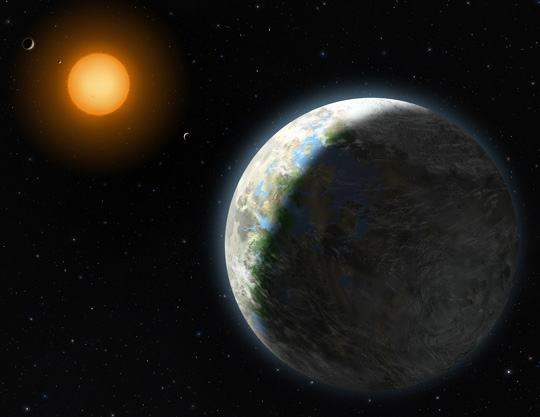it is important to keep in mind that, though all 6 planets presented here are well-supported by the calculated reduced chi-squared statistics and also by several different variants of FAP statistics, and the entire 6-planet system is consistent with the combined data set from both teams, caution is warranted as most of the signals are small. And there may yet be unknown systematic errors in either or both data sets.and then Vogt talking to Discovery News, says
"Personally, given the ubiquity and propensity of life to flourish wherever it can, I would say that the chances for life on this planet are 100 percent. I have almost no doubt about it."How are those statements even close? Well, they aren't. One is over-the-top conjecture by someone who should know better and one is a paper designed for scientists who would see their B.S. Richter Scales go right to to 8.1 if he said it in a real setting.
But once you make it known that promoting space science is more important than reasonable assertions, the floodgates are open.

Conception of Gliese 581g by Lynette Cook.
To wit, astronomer Ragbir Bhathal, a member of the Australian chapter of SETI ("Search for Extra-Terrestrial Intelligence") and a scientist at the University of Western Sydney, claims he detected a strange signal, a 'mysterious pulse of light', in the same area of the galaxy as far back as December, 2008.
For months after his discovery Dr Bhathal scanned the skies for a second signal to see whether it was just a glitch in his instrumentation but his search came to nothing.Not everyone is buying it, including fellow SETI folk. "I know the scientist, and when he first announced it, I asked him for the details, and he wouldn't send them to me," SETI founder Frank Drake (also of the somewhat misused Drake equation) told SPACE.com. "I'm very suspicious."
What's the harm? If one scientist can claim a 100% chance of life on a planet that may not even actually exist, or could be nothing but solid rock, why can't another discuss a signal from the same area in the popular press?
It's for bigger marketing minds in space science than me to decide. In the meantime, here is Carl Sagan discussing the chances of life out there:




Comments